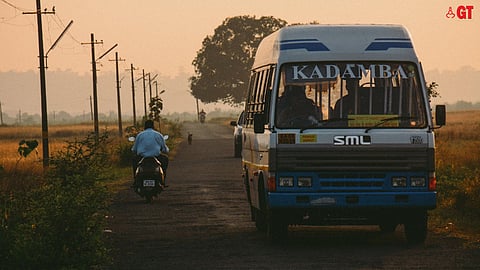

Goa State Commission for Protection of Child Rights has called for a complete ban on the surrogate advertising of Vimal Elaichi masala on KTCL buses because the consumption of the same has been noticed among children and has been found in schools too.
Section 5 of the COTPA Act, 2003, prohibits direct and indirect advertisements of tobacco products.
Recognising the increasing substance abuse problem among children, Goa SCPCR brought together all stakeholders on a common platform on April 21 at the Seminar Hall, Secretariat, Porvorim, to address the same through a multilateral, multipronged setting, effective and increased cooperation.
The Commission said it will provide leadership to the largest coordinated effort to fight substance abuse among children in the state with decisive plans and quarterly monitoring.
Section 5 of the COTPA Act, 2003, prohibits direct and indirect advertisements of tobacco products.
Taking heed of the report by the National Drug Dependence Treatment Centre (NDDTC) of the All-India Institute of Medical Sciences (AIIMS), Chairperson Peter F Borges said that both districts of Goa have been identified as vulnerable and that an addiction plague is steadily consuming Goa.
Borges also said, “Our response demands an urgent, integrated, mutually reinforcing, evidence-informed, balanced and comprehensive approach to supply and demand reduction strategies. While progress continues to be made, community-centric policing, medical consultation and intervention, awareness programmes and proactive governmental intervention are the need of the hour."
Stakeholders were called upon to affirm their unwavering commitment to addressing substance abuse, especially focusing on primary prevention, early intervention, treatment, care, rehabilitation, recovery and social reintegration measures.
According to Goa SCPCR, the use of these products is usually concentrated among the poor and other vulnerable groups. "Therefore, the ban on the display of such products will reduce the disproportionate health and economic burden on these groups," it stated.
According to Goa SCPCR, the use of these products is usually concentrated among the poor and other vulnerable groups.
It also called for special coordinated drives by Goa police in collaboration with the Directorate of Education to curb the sale of liquor, beedies/cigarettes, gutkha and other tobacco products within a 100-metre radius of schools and educational institutions, including coaching centres for children, as per Section 5 of the COTPA 2003.
The Directorate of Education will issue a special circular to schools in this regard for identification and action, it was informed.
Some of the recommendations that came out of the meeting are:
1) Ensure 100 per cent compliance with “No Smoking Area”, “Smoking here is an offence” and “Tobacco-free educational Institution” signage at the entrance(s) of educational institutions, as per Section 4 of the COTPA and marking of a 100 yards area from the outer limit of the boundary wall/fence of the educational institution.
The meeting called for ensuring 100 per cent formation of Prahari Clubs in schools and higher secondary schools, and create an annual plan for engagement of students with the nodal officer.
2) Ensure 100 per cent formation of Prahari Clubs in schools and higher secondary schools, and create an annual plan for engagement of students with the nodal officer.
3) There should be the formulation and adaptation of a school drug policy to set normative values and expectations for student behaviour, and the documentation of procedures for dealing with drug-related incidents in schools.
4) Capacity building of counsellors, nodal officers of Prahari Clubs, the health system and other actors is recommended to create a cadre of human resources that will effectively respond to the problem.
5) Create and submit an effective plan of action to the Commission for targeted sustainable drug-demand reduction programmes among children, with the engagement of stakeholders and submit the same to the Commission.
6) There is an incremental upsurge in the usage of e-cigarettes and vapes among children, with added flavours and attractive designs. The Commission recommends increased education about the harms associated with vaping, and more intensive monitoring and enforcement of the ban as per the Prohibition of Electronic Cigarettes Act 2019 to assist in reducing the uptake among children.